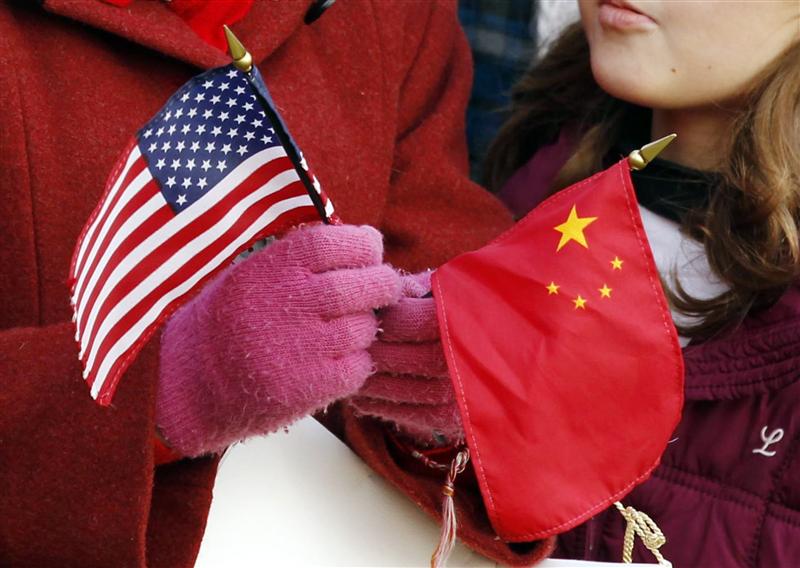
The United States will lose its place this year as the world's largest economy to China, at least in terms of an important economic measure tied to the cost of living, according to International Monetary Fund.
According to IMF data based on the purchasing power parity, or PPP, China was expected to make up $17.6 trillion of its gross domestic product, or GDP, compared to the U.S. figure of $17.4 trillion this year. However, Bloomberg pointed out that PPP uses exchange rates that adjust for price differences of the same goods between nations.
"The U.S. remains the biggest by the more common, more widely accepted and in our view, more useful measure," said David Hensley, the director of global coordination at JPMorgan Chase & Co.
According to The Telegraph, wages in China are much lower than in the United States. However, earlier IMF calculations indicated that China was not expected to surpass the U.S. through the PPP measure until 2019.
China's share of the global economy is now a little bigger than the U.S. at 16.5 percent to 16.3 percent respectively, reported Huffington Post. However, based on measuring overall size and not taking into account the cost of living, the U.S. still has a GDP worth $17.4 trillion, while China only has $10.4 trillion GDP.
The United States still maintains the lion's share in terms of the raw value of its currency, according to Newsweek. China still lags behind the U.S. in that economic aspect.
"The view we encounter now is a more sobering reassessment," Hensley said, adding that he prefers projections based on market exchange rates. "The U.S. has cleaned up its act. China still has a lot of work to do."
Huffington Post speculated that the PPP figures may have been affected by China manipulating its currency to be lower than the U.S. dollar. While this means products from China are cheaper as compared to products from the United States, this manipulation, along with a booming factory sector, may have also helped China's economy to grow at a very rapid pace.
According to IMF forecasts in its latest World Economic outlook, China is projected to grow by 7.4 percent this year. Those same forecasts also noted that shadow banking was on the rise in China and that Chinese authorities must work harder to apply structural reforms, according to The Telegraph.
Hensley warned that a preoccupation with this "competition or foot-race" captures little of the reversal of fortunes currently happening. He told Bloomberg that "you really exaggerate the importance of these economies" when one looks at a PPP comparison.
















